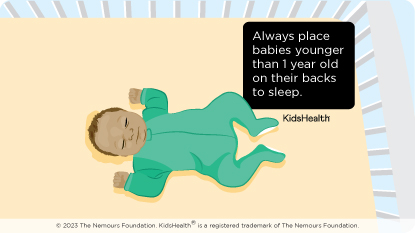BRUE (short for a "brief resolved unexplained event") is when a baby has a short, unexpected change in breathing, behavior, or appearance for unknown reasons. Most babies who have had a BRUE don't have one again. Your baby stayed in the hospital so the health care team could check them carefully and do tests. Here's how to care for your baby at home.


Other health reminders:

You know your baby best. If you are worried about movements your baby has, skin color changes, or anything else, talk to your health care provider. Also, if you are worried that someone may be hurting your baby, call your health care provider right away.

Your baby has another BRUE event. If your baby isn't breathing, start CPR right away and have someone call 911.

What happens during a BRUE? A BRUE is when a baby has changes in breathing or skin color, becomes floppy or stiff, or is hard to wake up. After the short event, the baby quickly gets back to normal (in less than 1 minute).
What causes a BRUE? The exact cause of BRUEs is not known. They happen more often in babies who were born early (preemies), are younger than 2 months old, have feeding problems, have a cold, or are around cigarette smoke.
Does a BRUE increase the risk of SIDS (sudden infant death syndrome)? No, having a BRUE doesn't make your baby more likely to have SIDS. But you should always follow safe sleep rules for your baby.